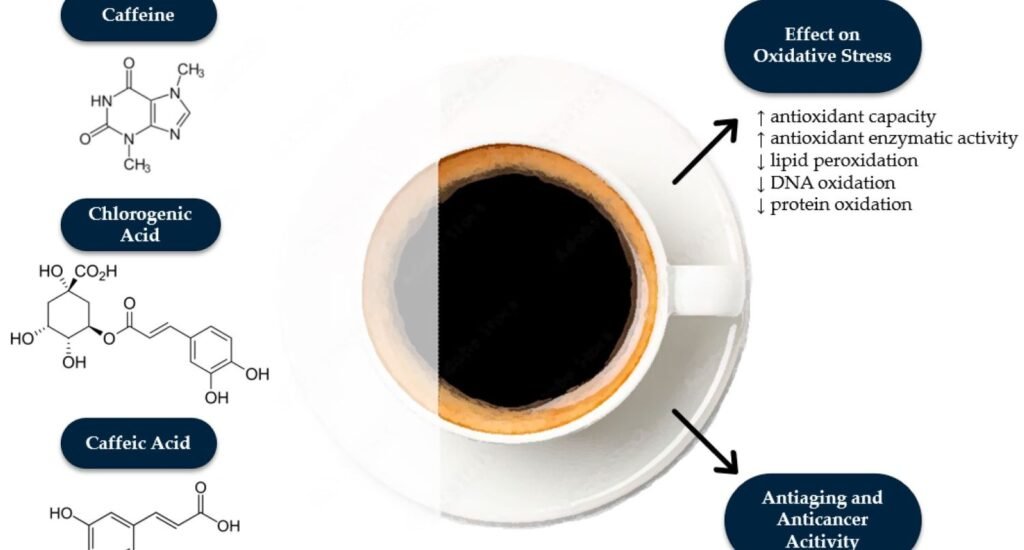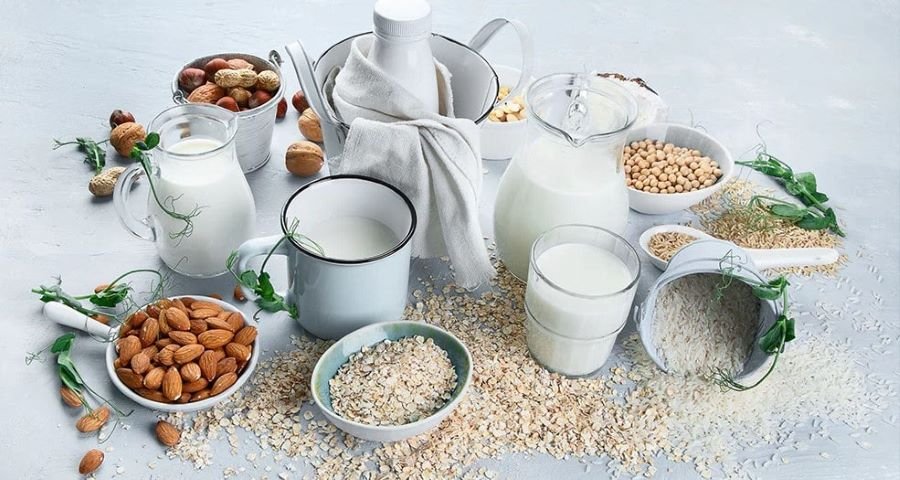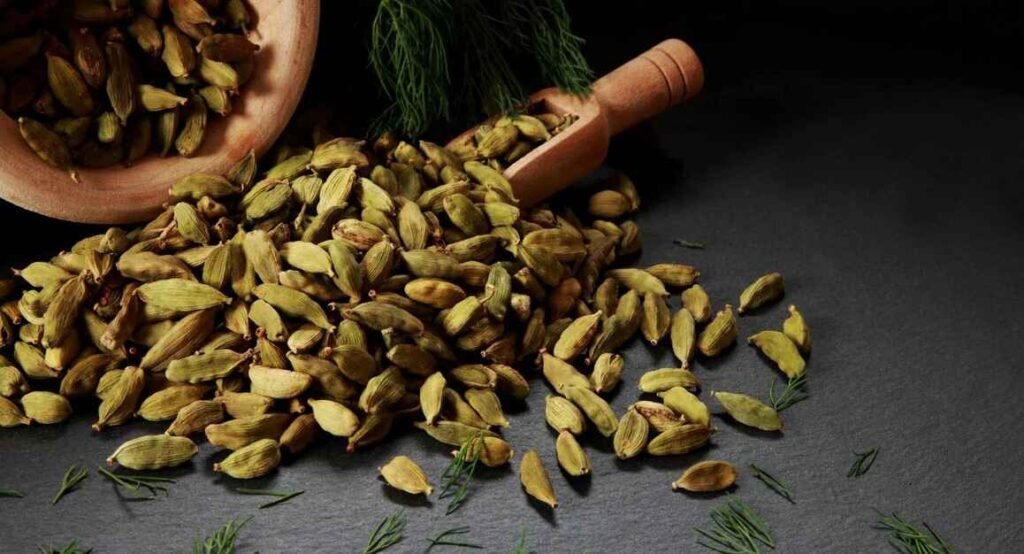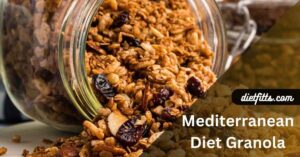What Can I Put In My Coffee On Mediterranean Diet – Try Different Tastes Of Coffee!

You’ll be glad to know you can enjoy your morning coffee while on the Mediterranean diet. And guess what? You can even have two to three cups of coffee daily without losing health benefits.
You can enhance your coffee with cinnamon, nutmeg, or almond milk for flavour without disturbing your diet’s guidelines. Additionally, for sweetness, opt for natural sweeteners like honey, brown sugar, etc, instead of adding too much sugar.
As coffee fans, many folks wonder what they can add to their coffee while following the Mediterranean diet. So stay tuned because we will explore a lot.
Table of Contents:
What is the Mediterranean Coffee Culture – Uncover The Facts!
Around the 9th century, coffee was first found in Ethiopia. Later, around the 15th century, coffee reached the Arabian Peninsula. By the 17th century, it spread to Europe and then America.
Coffee is a big deal in many countries worldwide, like Italy, Greece, France, Spain, and Turkey. Cafes there are bustling hubs of culture, and people from all walks of life enjoy their daily brew.

You can have coffee on a Mediterranean diet, but it’s enjoyed differently than in America. In many Mediterranean places, coffee is cherished and often served in small cups called “demitasse.” Nowadays, coffee is everywhere and loved by many cultures worldwide.
Health Benefits Of Coffee Consumption – Have A Brief Look!
1. Coffee Has Antioxidant Properties And Anti-Inflammatory Effects:
The antioxidants in coffee, called polyphenols, are crucial for stopping damage caused by too many free radicals. Polyphenols are in lots of plant-based foods. A diet rich in polyphenols can lower the chance of heart disease, stroke, and diabetes.
In coffee, antioxidants like chlorogenic and caffeic acid may help reduce inflammation and protect against cellular damage. They also help fight inflammation, which lowers the risk of these diseases even more.

2. Coffee Is A Good Agent Of Weight Loss:
Drinking caffeine can speed up metabolism, possibly aiding in weight loss. Metabolism is how your body turns the food you eat into energy. Even when you’re not moving, your body needs energy for basic functions.
The rate at which your body burns calories at rest is called the basal metabolic rate (BMR). People with a faster BMR burn more calories even when inactive. So, boosting metabolism and BMR can help you lose weight when paired with other healthy habits.
3. Protection Against Neurodegenerative Diseases:
Some people think that drinking coffee could shield against memory loss and diseases like Alzheimer’s and Parkinson’s, similar to the mind diet.
But we’re still determining why and need more research in this field. Coffee consumption has been linked to a reduced risk of neurodegenerative diseases such as Alzheimer’s and Parkinson’s.
Also read: Can I Drink Orange Juice On Mediterranean Diet? – Refreshing Twist To Your Healthy Lifestyle!
4. It Supports Our Liver:
Your liver is super essential for cleaning out toxins and helping with metabolism. Drinking coffee has been linked to a lower chance of liver disease and liver cancer.

Research shows that coffee might help protect your liver from damage caused by things like fatty liver disease, cirrhosis, and hepatitis. The good stuff in coffee, like antioxidants and its ability to calm inflammation, are behind these benefits.
Here you go! You have learned the culture and benefits of coffee. For more details also visit this community website.
What Can I Put In My Coffee On Mediterranean Diet – Choose The Alternatives!
Creamer Options for Mediterranean Diet Coffee:
- Skim or Low-fat (1%) Milk: “I think picking for a skinny latte is a good choice. It adds minimal fat to my coffee but won’t make it as creamy as almond or soy milk.”
- Soy Milk: Like almond milk, soy milk adds creaminess and more protein. It also helps lower bad cholesterol and triglycerides, which is good for your heart. Look for unsweetened varieties.
- Evaporated Milk: This is not the same as condensed milk. Evaporated milk is low in sugar and fat, making it a creamy and heart-healthy option for your coffee.
- Non-fat Milk Powder: This powdered milk alternative adds creaminess without fat. Keep in mind it contains lactose, so it’s not lactose-free.
- Almond Milk: If you want a creamy coffee with a hint of nuttiness, go for almond milk. It’s plant-based, lactose-free, and fits well with the Mediterranean diet. Opt for unsweetened almond milk to keep sugar levels low.

Sweetener Options For Mediterranean Diet Coffee:
- Sugar: you can use regular sugar, but not too much. One teaspoon of sugar equals 4 grams of added sugar.
- Honey: I often choose honey as a natural sweetener packed with vitamins and minerals, especially popular in the Mediterranean. Honey adds sweetness without refined sugar.
- Maple Syrup: Another natural sweetener rich in vitamins and minerals. One teaspoon of maple syrup equals 5 grams of added sugar.
- Stevia: A sweetener from the Stevia plant, much sweeter than sugar but without the calories. It’s FDA-approved and can be found in stores.
- Monk Fruit: Also calorie-free and derived from plants, monk fruit is 300 times sweeter than sugar. It’s FDA-approved and contains mongooses, which help fight inflammation.
As a dietitian, I recommend consuming at least one cup of coffee daily. It’s particularly beneficial to opt for black coffee. Personally, I enjoy a cup of black coffee every day. It helps suppress my hunger and is very helpful in losing weight. Its antioxidant properties protect against various diseases.
Also read: Can I Eat Honey On Mediterranean Diet? – Unlocking Sweet Secrets!
Options To Spice Up Your Mediterranean Diet Coffee – Try New Flavors!
- Cinnamon: adds a warm, fragrant flavor to your coffee, complementing its natural bitterness and giving it a Mediterranean twist. It also helps keep your blood sugar levels stable.
- Turmeric: Adding a quarter to half a teaspoon can bring antioxidant and anti-inflammatory benefits to your coffee. It has an earthy taste that might take some getting used to.
- Cardamom: Common in Middle Eastern countries, cardamom adds floral and citrusy notes to coffee. Sprinkle ground cardamom in your brew for a unique aroma.

- Vanilla Extract: A few drops of pure vanilla extract can work wonders for a touch of sweetness. Choose high-quality vanilla for a subtle, natural sweetness without artificial additives.
- Honey: A natural sweetener cherished in Mediterranean cuisine, honey adds sweetness without the need for refined sugar, promoting the diet’s preference for whole foods.
- Unsweetened Cocoa: A teaspoon of cocoa can give your coffee a chocolaty boost of antioxidants.
Maximizing Your Coffee Experience – Tips for Healthier Consumption!
- Try black coffee instead of adding sugar or sweeteners.
- Drink some water along with your coffee.
- Use a smaller cup to have just the right amount of coffee.
- Enjoy your coffee with a healthy Mediterranean meal.
- Share your coffee time with friends or family.
- Consider having decaf coffee, especially in the afternoon or evening.
All of it! I hope you find a valuable answer to your question in this article. Feel free to try this forum website.
Frequently Asked Questions:
1. Is it better to use whole milk or half and half in coffee?
Yes, u can, but If you choose between whole milk and half and half as a coffee creamer, go with whole milk. Whole milk has 30% of its calories from saturated fat, while half and half have 45% of its calories from saturated fat. Whole milk also has less cholesterol than half and half.
2. Is coconut milk okay for coffee?
Yes, coconut milk is a popular dairy alternative that can be used in coffee. According to the USDA, even light coconut milk has 4.5 grams of total fat and 4 grams of saturated fat in a 1/3 cup serving.
3. Can I enjoy a Mediterranean-style coffee if I’m lactose intolerant?
Yes! You can swap out dairy milk for plant-based options such as almond, oat, or coconut milk to make tasty Mediterranean-inspired coffee drinks that suit your dietary choices.
Conclusion:
Enjoying coffee on a Mediterranean diet is possible and offers a range of delicious and nutritious options. From alternative creamers and sweeteners to flavorful spices and herbs, there are plenty of ways to customize your coffee while staying true to the Mediterranean lifestyle.

Hi! I’m Olivia Steeve, a certified nutritionist with over 11 years of experience in the field of diet and nutrition. At DietFitts, I focus on providing scientifically-backed, practical advice to help individuals achieve their health and fitness goals through balanced eating. I share insights, tips, and personalized guidance to help you make healthier choices and live your best life.









naturally like your web site however you need to take a look at the spelling on several of your posts. A number of them are rife with spelling problems and I find it very bothersome to tell the truth on the other hand I will surely come again again.
Thank you for your feedback. We’ll work on improving the spelling in our posts to enhance your experience!
This is really interesting, You’re a very skilled blogger. I’ve joined your feed and look forward to seeking more of your magnificent post. Also, I’ve shared your site in my social networks!
Thank you so much for your appreciation. I hope you will find more informative data on this website.